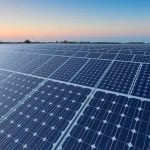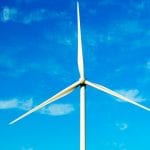Around The Web
The reason Australia doesn't have nuclear power: the workers fought back | Jeff Sparrow
Workers have been fighting uranium mining for decades – the environment needs mass civil disobedience
What do Clive Palmer, Tony Abbott, Cory Bernardi, Barnaby Joyce, Mark Latham, Jim Molan, Craig Kelly, Eric Abetz and David Leyonhjelm have in common?
No doubt many answers will come to to mind. But whatever else unites them, they all support nuclear power.
Continue reading...Beryl solar farm reaches full output after single month of commissioning
 Beryl solar farm reaches full output just a month after energisation.
Beryl solar farm reaches full output just a month after energisation.
The post Beryl solar farm reaches full output after single month of commissioning appeared first on RenewEconomy.
Department publishes partnerships risk appetite statement
Department publishes partnerships risk appetite statement
Department publishes partnerships risk appetite statement
Curious Kids: why do spiders need so many eyes but we only need two?
CO2 and how it links manure and fizzy drinks
Praise for the Partnerships Statement
Climate change: Cashing in on CO2
Australia's extinction rate one of the worst on the planet: UN report
Would you eat meat grown from cells in a laboratory? Here's how it works
Vestas buys into 4GW Walcha wind, solar and storage hub in NSW
 Vestas buys majority stake in 700MW wind project, which forms an important part of the largest wind, solar and storage hub planned for Australia's main grid.
Vestas buys majority stake in 700MW wind project, which forms an important part of the largest wind, solar and storage hub planned for Australia's main grid.
The post Vestas buys into 4GW Walcha wind, solar and storage hub in NSW appeared first on RenewEconomy.
Private sector must be forced to invest in ‘green revolution’, says Labour
Labour will back measures deterring investment in fossil fuels as part of a new drive to stop the financial sector from funding global heating, John McDonnell will reveal this week.
In the latest attempt by Labour to display its green credentials, the shadow chancellor will use a speech in the City on Monday to commit to using the “full might of the Treasury” to tackle the issue. He will commit the party to forcing the private sector into investing in the “green industrial revolution”.
Continue reading...Great Pacific garbage patch: giant plastic trap put to sea again
Floating boom is designed to trap 1.8 trillion items of plastic without harming marine life – but broke apart last time
A floating device designed to catch plastic waste has been redeployed in a second attempt to clean up a huge island of garbage swirling in the Pacific Ocean between California and Hawaii.
Boyan Slat, creator of the Ocean Cleanup project, announced on Twitter that a 600-metre (2,000-foot) long floating boom that broke apart late last year was sent back to the Great Pacific garbage patch this week after four months of repair.
Continue reading...Should I buy an electric car? All you need to know about prices, technology and range
As big global carmakers electrify their models, we ask experts about how things could shape up in Australia
Of all the bizarre sideshows on the 2019 federal election trail, the pantomime around electric cars had to be one of the strangest. Scott Morrison argued that Labor’s plan for 50% electric vehicles by 2030 would “ruin the weekend” and the Liberal party paid for Facebook ads claiming Labor would confiscate tradies’ Hilux utes.
Meanwhile, all the world’s big car manufacturers are busy getting on with electrifying their model ranges. But while things are changing, buying an EV is still a big leap. Guardian Australia spoke to experts about the options.
Continue reading...The women fighting for Lapland
Arrests at protest over New York Times' 'unacceptable' climate coverage
- Protesters block avenue between Port Authority and NYT
- Extinction Rebellion calls for better coverage of climate crisis
A climate change protest orchestrated by the Extinction Rebellion activist group briefly blocked Eighth Avenue in New York on Saturday afternoon, between the Port Authority transit hub and the home of the New York Times.
The New York police department (NYPD) said 70 people were arrested as they called for more effective media coverage of the dangers of climate change, in a dramatic demonstration that saw people stage a die-in in front of the newspaper building and disrupt traffic in midtown Manhattan.
Continue reading...Vanuatu to ban disposable nappies in plastics crackdown: 'We had no choice'
Nation suffering disproportionately from climate emergency to phase in ban, believed to be world first, by December
It is but a tiny speck in the Pacific Ocean, but the island state of Vanuatu is leading the global fight against plastic waste. The nation, which has already introduced one of the toughest single-use plastic bans in the world, is believed to be the first to propose a ban on disposable nappies, to be phased in at the end of this year.
At a meeting in London this week, chaired by Patricia Scotland, the secretary general of the Commonwealth, Vanuatu was hailed as a “champion” nation, one of 12 who are forging ahead in tackling ocean and climate emergency challenges.
Continue reading...Fukushima diary, part three: Restoring crops and a sense of pride
The mayor of Okuma, home of the damaged nuclear power plant, has been in exile for eight years – here he writes about finally returning
The residents of Okuma were among more than 150,000 people who were forced to flee their homes after the March 2011 triple meltdown at the Fukushima Daiichi nuclear power plant. As one of the wrecked plant’s two host towns, Okuma was abandoned for eight years before authorities declared that radiation levels had fallen to safe levels, allowing residents to return. Even now, 60% of Okuma remains off limits, and only a tiny fraction of the pre-disaster population of 11,500 has returned since their former neighbourhoods were given the all clear in April. A month later, Okuma’s mayor, Toshitsuna Watanabe, and his colleagues returned to work at a new town hall. In his final diary for the Guardian, Watanabe reveals he has mixed feelings about being able to return to his family home.
Continue reading...


